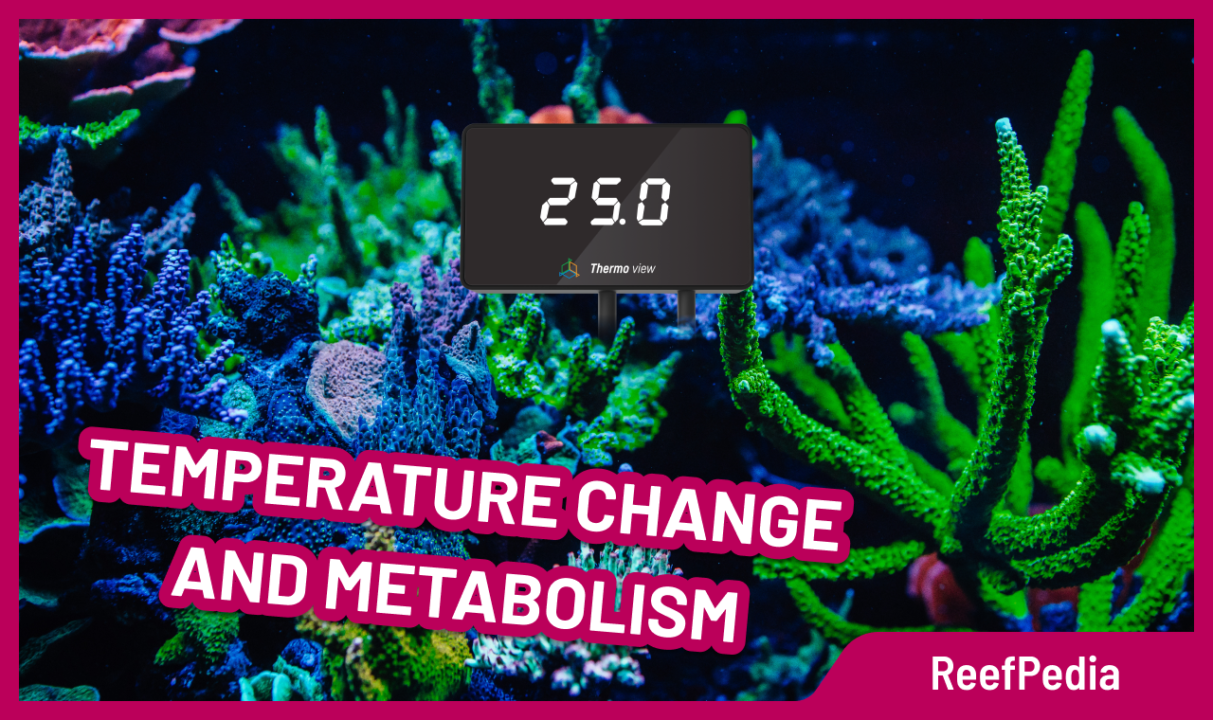Table of Contents
Temperature changes in water significantly affect the functioning of marine organisms, especially their metabolism. Metabolism is a collection of life processes that enable growth, reproduction, and the acquisition and processing of energy by organisms. The right water temperature is crucial for maintaining optimal metabolism in marine ecosystems.
Below, we describe how temperature changes can affect these processes and provide examples of such impacts.
Changes in metabolic rate
Water temperature influences the speed of biochemical reactions in marine organisms. Generally, higher temperatures accelerate metabolic processes up to a certain optimal point—for example, 27 – 28°C. For instance, some marine fish may show increased activity and faster growth in warmer water, but only until the temperature exceeds their tolerance threshold.
Impact on photosynthesis
In marine ecosystems, such as coral reef aquariums, water temperature directly affects the photosynthesis conducted by symbiotic algae (zooxanthellae) that live in the tissues of corals. Too high a temperature can lead to thermal stress in the algae, resulting in their expulsion by the corals, leading to a phenomenon known as coral bleaching.
Changes in food availability
The metabolism of marine species also depends on the availability of food, which can be altered by water temperature. For example, in warmer waters, some species of plankton may develop faster, which in turn affects the availability of food for fish and other marine animals.
Impact on reproduction
Temperature also directly affects the reproductive cycles of many marine organisms. Too low or too high temperatures can lead to reduced fertility or changes in spawning times, affecting population regeneration.
Coral growth rate
Studies have shown that slightly higher water temperatures, within a safe range, can promote coral growth, but only up to a certain point. Higher temperatures accelerate the metabolism of corals and can increase their growth rate through more efficient photosynthesis conducted by symbiotic algae (zooxanthellae). However, exceeding the optimal temperature range can lead to thermal stress, bleaching, and even death of corals. Therefore, it is crucial to monitor and maintain water temperatures within limits that are safe and beneficial for corals.
Examples of temperature impact on metabolism
- Sharks: In hammerhead sharks, body temperature is regulated by special vascular networks that allow them to hunt in colder waters. A change in the temperature of their environment can affect their ability to hunt and survive.
- Corals: As mentioned, corals suffer from bleaching at too high temperatures, which directly affects their metabolism and ability to survive.
- Marine fish may be more inclined to spawn at specific water temperatures. An example is the ocellaris clownfish (Amphiprion ocellaris), which has optimal spawning temperatures ranging from 79°F to 82°F (about 26°C to 28°C). Maintaining water temperatures within this range can promote better development of eggs and larvae, increasing hatching efficiency. It is important that these temperatures are stable, as fluctuations can negatively affect the reproduction process.
About the author

Marek Protasewicz
Reefkeeping has been my passion for over 10 years now. I love learning. The hobby has taught me many valuable lessons, patience being the best example. Combining work and passion is my path. I run Crazy Coral, a marine aquarium shop, for a number of years. Building this business from the scratch I learnt from my own mistakes at a heavy cost.
Later I managed a project aimed at development of methods for quick growth of Corals in non-natural conditions. The project was carried out by Get Sales, Poland. Presently, I am responsible for distribution strategy at Reef Factory, of which I am a co-founder. The company produces smart devices for marine aquaristics. The last projects I have been involved in are Social Reef and ReefPedia.



